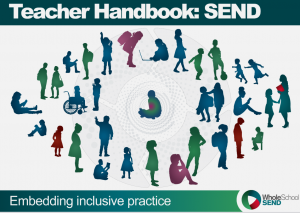
Teaching is the most amazing profession and as a community of public professionals we earn trust from society through the standards that we uphold. The pre-amble statement for the Teachers’ Standards reminds us that: ‘ Teachers make the education of their pupils their first concern, and are accountable for achieving the highest possible standards in work and conduct. Teachers act with honesty and integrity; have strong subject knowledge, keep their knowledge and skills as teachers up-to-date and are self-critical; forge positive professional relationships; and work with parents in the best interests of their pupils’. Part Two of the Standards helps to make explicit some of the ways that we can achieve this. This Standard ranges from the day-to-day professionalism demonstrated by colleagues such as timekeeping, dressing professionally and maintaining professional relationships with staff and students to the deployment of support staff and communication with parents. Please remember that:
- Developing effective relationships can take time.
- Effective professional development can take time.
- Teachers can make valuable contributions to the wider life of the school in a broad range of ways.
- You are not on your own: always converse with colleagues for support.
Teacher Educators will be ambitious to support beginning teachers through professional learning conversations. Such dialogues will help them to consider why it is important that:
- Teachers uphold public trust in the profession and maintain high standards of ethics and behaviour, within and outside school.
- Teachers must have proper and professional regard for the ethos, policies and practices of the school in which they teach, and maintain high standards in their own attendance and punctuality.
- Teachers must have an understanding of, and always act within, the statutory frameworks which set out their professional duties and responsibilities.
Beginning teachers will be motivated to be a role model to students and make a positive impression in terms of professionalism. You may wish to get involved with extra-curricular activities; you should seek to take part in all aspects of school life such as the pastoral system, you should form positive, professional relationships with all colleagues and with parents and carers.
You should also take personal responsibility for your own professional development: part of this will be through the Early Career Framework, but this can also stem from following experts on Twitter and discussing with expert colleagues in your school.
You should also take personal responsibility for your own professional development: part of this will be through your initial teacher education programme and subsequently via the Early Career Framework, but this can also stem from following experts on Twitter and discussing with expert colleagues in your school.
In relation to inclusive pedagogy planning and professional behaviours, working with families and carers is significant. Pages 26- 30 of the handbook provide some helpful insights in this regard. Additionally the information that relates to working with teaching assistants on pages 39- 41 might be helpful to reference.

- How will you demonstrate the positive values and behaviours expected of teachers?
- What do you do so as to conduct yourself in an appropriately professional manner both within the school setting and in your own personal time?
- Why is it important to demonstrate your commitment for safeguarding all learners?
- How can you build relationships rooted in mutual respect whilst maintaining proper boundaries?
- Can you identify which appropriate personnel to contact if you have concerns about a child or other staff you work with?
- What strategies are you drawing upon to ensure that your workload is manageable?
- To what extent do you check that your own social media presence is appropriate for a public professional?
- Have you been made aware of the support available from Teaching Unions?
- Have you been made aware of different ways to draw upon pupil voice?
- Have you been made aware of different ways of working with teaching assistants?

- In this 4-minute video Dylan Wiliam provides a simple introduction to the concept of teachers’ reflective practice and how this sets the context for teaching and learning.
- The report ‘Making best use of teaching assistants’ by the Education Endowment Foundation provides guidance to help primary and secondary schools make the best use of teaching assistants. This weblink takes you to the full report, a summary poster, the evidence behind the report’s findings and a series of short video case studies including:
- This 4-minute video introducing teachers to the Education Endowment Foundation’s evidence about the best deployment of teaching assistants.
- This 4-minute video focusing on the Education Endowment Foundation’s evidence around teaching assistant deployment at a classroom level.
- This A4 poster summarises the dos and don’ts of the 3 Teacher Workload reports published by the DfE in 2016 on data management, marking and planning and resources.
- The DfE’s ‘Addressing workload in initial teacher education’ (ITE) (2018) provides practical examples to help ITT providers reduce the workload of trainee teachers and their partnership schools.
The Chartered College of Teaching, as the professional body for teachers, are working to celebrate, support and connect teachers to take pride in their profession and provide the best possible education for children and young people. You may find the following resources to be of support

